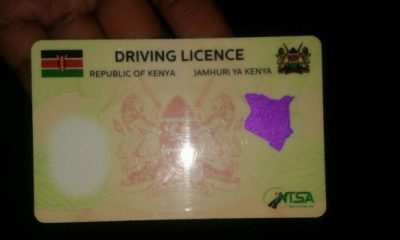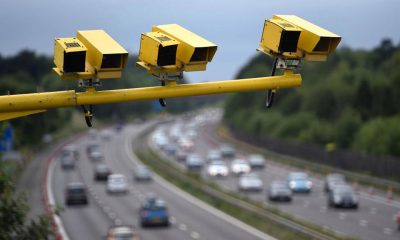News
CASH FOR LICENSE: NTSA Director Under Fire As Infighting Exposes Extortion Racket in Driving Schools
Lucy Mulaa, John Masila, and John Mutiso—three NTSA staffers who work under Tuigong, have been dragged through a humiliating ordeal that reeks of intimidation and retaliation.
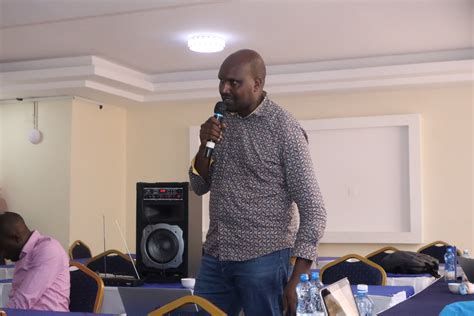
Millions minted from desperate learners as agency admits bribery ring fleecing the public
The National Transport and Safety Authority is sitting on a scandal that has exposed the ugly underbelly of Kenya’s driver licensing system, where examiners allegedly mint millions of shillings from desperate learners while senior managers turn a blind eye or worse, orchestrate the rot from within.
In an explosive twist, three NTSA whistleblowers now face criminal charges not for extorting money from driving school students, but for daring to expose a deputy director allegedly at the heart of a bribery racket that has turned the agency’s driver testing department into a cash cow for corrupt officials.
The scandal erupted after two anonymous emails landed in NTSA’s inbox in April and July this year, detailing how Deputy Director Wilson Tuigong, who heads Driver Training and Testing, was allegedly involved in a sophisticated bribery scheme that has been bleeding learner drivers dry for years.
Instead of investigating the explosive allegations, NTSA has allowed the Directorate of Criminal Investigations to go after the messengers.
Lucy Mulaa, John Masila, and John Mutiso—three NTSA staffers who work under Tuigong, have been dragged through a humiliating ordeal that reeks of intimidation and retaliation.
DCI officers from Kabete Police Station want them charged with publishing false information under the controversial Computer Misuse and Cybercrimes Act, despite admitting they have no evidence linking the trio to the whistleblower emails.
The irony is sickening.
While the three face prosecution for allegedly defaming their boss, not a single NTSA official has been charged or dismissed over the very real extortion racket that the agency itself has admitted exists.
In a damning letter dated April 8, 2025—just three weeks before the first whistleblower email, NTSA Director of Road Safety Andrew Kiplagat wrote to all driving schools acknowledging that examiners were taking bribes euphemistically referred to as “appreciation.”
The letter laid bare how the racketeering ring operates: driving school operators mobilize money from students, which instructors then hand over to NTSA examiners to guarantee their learners pass tests.
“Facilitating and aiding corruption within the driver training and testing process is a major threat to road safety, given that drivers bear the greatest responsibility as far as safety on the roads is concerned,” Kiplagat wrote, in what amounted to an official confession that corruption has compromised the very integrity of Kenya’s roads.
But that admission has meant nothing.
While NTSA was busy writing letters about corruption, it was simultaneously ignoring internal complaints about the same rot.
When Tuigong filed his cyberbullying complaint in September, he told Director-General George Njao that he had gone to the DCI because NTSA had failed to act on his complaints about the emails and leaflets pinned in office washrooms in 2024 that made similar allegations against him.
The arrests that followed were brutal and calculated.
On September 5, DCI officers swooped on Masila and Mutiso in Industrial Area and Machakos, hauling them to Kabete Police Station.
The next morning at 7am, they came for Mulaa at her Lang’ata home, armed with a search warrant they allegedly refused to show her or her husband.
They seized her laptop and phone, taking an inventory so shoddy her lawyers have accused them of intimidation and harassment.
All three were released on Sh100,000 police cash bail each and told to appear in court on September 22 for plea-taking.
But that hearing never happened.
The case was postponed to September 30, then to October 28.
Nearly a month after their arrests, the suspects are yet to be presented with a single shred of evidence linking them to the emails.
What they have been presented with, however, is a detailed picture of the toxic workplace environment at NTSA’s Upper Hill headquarters, where personal vendettas and power struggles have festered for years while corruption flourishes unchecked.
In her statement to the DCI, Mulaa painted a picture of systematic harassment that began when Tuigong became her supervisor in 2019.
She claims he refused to assign her work, prompting her to transfer to the Licensing Department in 2021. Three years later, she successfully applied for a manager position in Driver Training and Testing—placing her directly under Tuigong again.
That’s when things turned ugly.
Tuigong allegedly accused her of working against him alongside other NTSA staff, including some of his superiors.
Tuigong, for his part, confirmed in a phone interview that he filed the cyberbullying complaint after the two emails and “many other related things” he declined to specify.
He claimed he initially didn’t know why his juniors had been arrested and maintained he hasn’t been updated on the probe’s status.
His response to questions about whether the arrests could discourage whistleblowing was telling: he insisted NTSA has a clear policy for anonymous complaints while simultaneously using the DCI to pursue the very people he suspects of making anonymous complaints about him.
The use of the Computer Misuse and Cybercrimes Act to prosecute the trio is particularly chilling.
Sections 22 and 23 of the 2018 law, which criminalize publishing false information, have been widely criticized as a backdoor reintroduction of criminal defamation—declared unconstitutional by the courts in 2017.
The law was passed a year after criminal defamation was scrapped, and the Bloggers Association of Kenya is currently challenging it at the Court of Appeal, arguing it stifles free speech and whistleblowing.
The scandal couldn’t come at a worse time for NTSA.
Just this February, the Ethics and Anti-Corruption Commission pledged to partner with the agency to combat what EACC CEO Abdi Mohamud called “licensing to kill”—the practice of issuing driving licenses to unqualified individuals through corrupt means.
The Road Safety Association of Kenya has previously claimed that up to 80 percent of licenses issued during certain periods were obtained fraudulently, with many recipients never setting foot in a driving school.
The human cost of this corruption is written in blood on Kenya’s roads.
With 3,397 road deaths recorded in the first nine months of this year alone—28 more than the same period last year—every fraudulent license represents a potential killer behind the wheel.
Yet while NTSA management fights internal wars and hunts down whistleblowers, the examiners and officials allegedly pocketing “appreciation” from desperate learners remain at their posts, business as usual.
Mulaa’s lawyers at Obura Mbeche & Company Advocates have written to the Director of Public Prosecutions highlighting the irregularities in their client’s arrest and the suspicious timing of the charges.
The letter notes that the DCI officers’ conduct was designed to “intimidate, embarrass, and instil fear” in their client and her family.
For now, the three NTSA staffers wait for their October 28 court date, their careers in limbo, their reputations dragged through the mud.
Meanwhile, the real question remains unanswered: If NTSA officially admitted in April that a bribery racket is fleecing driving school students, why is it investigating the people who reported the corruption instead of the corrupt officials themselves?
In Tuigong’s department, learner drivers continue paying unofficial “appreciation” to pass their tests. The examiners continue collecting.
And at NTSA headquarters in Upper Hill, the washroom walls where anonymous leaflets once exposed the rot now stand clean—sanitized not because the corruption has ended, but because the agency has found a more effective solution: silence the whistleblowers with the full force of criminal law.
The message is unmistakable.
In the NTSA of 2025, you can extort millions from learner drivers with impunity.
But dare to expose those doing the extorting, and you’ll find yourself fighting for your freedom.
Kenya Insights allows guest blogging, if you want to be published on Kenya’s most authoritative and accurate blog, have an expose, news TIPS, story angles, human interest stories, drop us an email on [email protected] or via Telegram
-

 News2 weeks ago
News2 weeks agoTHE FIRM IN THE DOCK: How Kaplan and Stratton Became the Most Scrutinised Law Firm in Kenya
-

 Grapevine1 week ago
Grapevine1 week agoA UN Director Based in Nairobi Was Deep in an Intimate Friendship With Epstein — He Even Sent Her a Sex Toy
-

 Politics2 weeks ago
Politics2 weeks agoPresident Ruto and Uhuru Reportedly Gets In A Heated Argument In A Closed-Door Meeting With Ethiopian PM Abiy Ahmed
-

 Investigations1 week ago
Investigations1 week agoHow Mexico Drug Lord’s Girlfriend Gave Him Away
-

 Business2 weeks ago
Business2 weeks agoSafaricom Faces Avalanche of Lawsuits Over Data Privacy as Acquitted Student Demands Sh200mn Compensation in 48 Hours
-
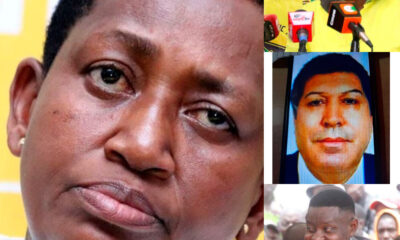
 Investigations1 week ago
Investigations1 week agoHow Close Ruto Allies Make Billions From Affordable Housing Deals
-

 Investigations2 weeks ago
Investigations2 weeks agoKenya’s DCI Opens Probe on Russian Man Who Secretly Filmed Sex Escapades With Women — But There’s a Slim Chance They’ll Ever Get Him
-
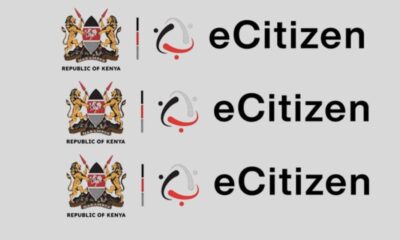
 Investigations2 weeks ago
Investigations2 weeks agoHow A Female Employee and Her Accomplice Cracked eCitizen and Siphoned Sh10 Million From Moi Teaching and Referral Hospital

